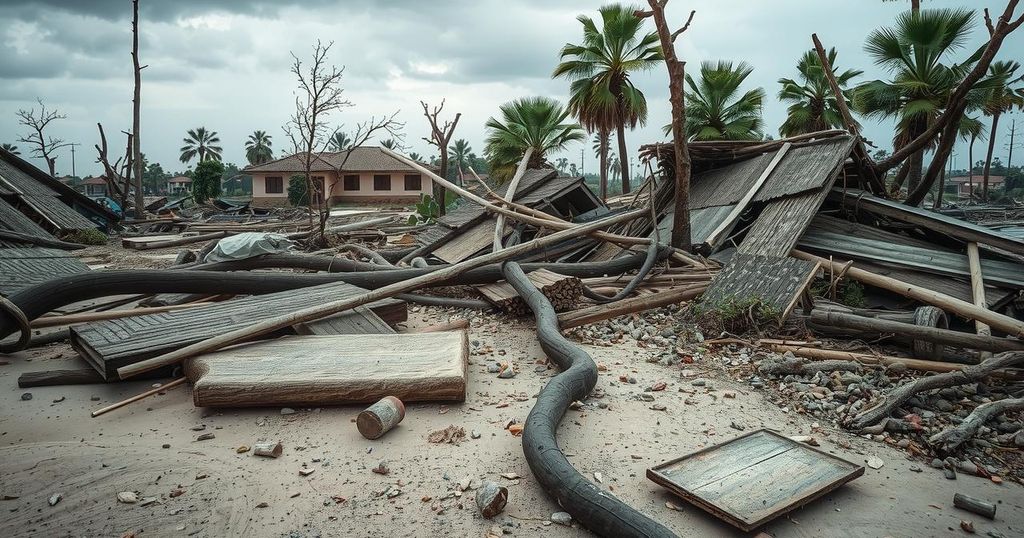Cyclone Chido’s Catastrophic Impact on Mozambique: 34 Lives Lost and Widespread Destruction

Cyclone Chido has caused at least 34 deaths and widespread destruction in Mozambique, particularly affecting the provinces of Cabo Delgado, Nampula, and Niassa. The storm brought heavy rains, high winds, and significant infrastructural damages, displacing thousands. Authorities are urging vigilance while calling for international aid as relief efforts are initiated to assist the impacted communities.
Cyclone Chido has tragically taken at least 34 lives in Mozambique, as confirmed by the National Institute of Risk and Disaster Management (INGD). The cyclone, which struck earlier in the week, has led to widespread devastation, leaving thousands homeless and causing significant damage to infrastructure, including homes and roadways. Initially impacting the Cabo Delgado province, the cyclone has since traversed into the Nampula and Niassa provinces, prompting emergency responses from officials. Despite a reduction in intensity, heavy rains and winds continue to pose risks to affected communities. Authorities are urging the local population to remain vigilant and heed safety warnings as they navigate this crisis, which has resulted in 319 injuries and affected approximately 175,000 individuals. The international community is also being called upon to provide humanitarian assistance, particularly as many families face the threat of food insecurity and loss of access to essential services such as healthcare and education. The UN Children’s Fund and other organizations anticipate dire impacts, especially on children, as the cyclone exacerbates existing vulnerabilities in an already troubled region.
The passage of Cyclone Chido represents a significant humanitarian crisis for Mozambique, a nation that frequently endures natural disasters, particularly in its northern regions. The cyclone has highlighted the compounded vulnerabilities stemming from prior conflict and underdevelopment. In addition, the cyclone’s impact is further amplified by its trajectory through an area affected by previous storms and cyclonic activity, which presents ongoing challenges for recovery and resilience against future disasters.
In conclusion, Cyclone Chido’s devastation underscores the urgent need for both national and international support for Mozambique. With 34 confirmed fatalities and extensive damage to homes and infrastructure, the situation remains critical. Authorities and humanitarian organizations must prioritize relief efforts, particularly for the most vulnerable populations, including children and families in affected regions. Collective action and responsiveness will be essential in mitigating the calamity’s long-term repercussions.
Original Source: www.rfi.fr






